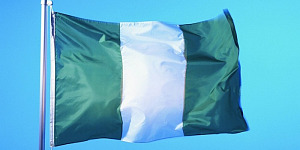Nigeria’s Gross Domestic Product (GDP) contracts by 1.92% in real terms in 2020 from N71.39 trillion recorded in 2019 to N70.01 trillion.
This is according to the Gross Domestic Product Report, released by the National Bureau of Statistics (NBS) on Thursday.
However, the economy posted real GDP growth of 0.11% in the fourth quarter of the year, suggesting that the economy is exiting the covid induced recession.
Checks by Nairametrics also showed that the 2020 aggregate GDP represents a 0.29% increase when compared to N69.81 trillion recorded in 2018.
Sectoral performance
- The oil sector contracted by 8.89% in 2020 compared to 4.59% recorded in 2019 and 0.97% in 2018.
- Non-oil sector however also contracted by 1.25% as against 2.06% growth recorded in the previous year.
- Meanwhile, the agricultural sector grew by 2.17% in real terms in 2020, slightly below the 2.36% growth recorded in 2019.
- The manufacturing sector also recorded a decline of 2.75% in its annual GDP compared 0.77% growth recorded in 2019, information and communication grew by 12.9% while the financial and insurance sector recorded growth of 9.37% in 2020.
- Others include; trade (-8.49%), transportation and storage (-22.26%), real estate (-9.22%), education (-13.57%), public administration (0.1%).
Why the contraction
The negative growth can be attributed to the downturn caused by covid-19 pandemic, which necessitated lockdown actions across the country as a measure to curb the spread of the pandemic.
- The implementation of the lockdown, caused significant disruptions in the value chain, halt in most aspects of the economy, disruption in the manufacturing sector, and many more. Specifically, many Nigerian lost their jobs during this period, and those who had their jobs had to work remotely from their various homes.
- The EndSARS protest that turned violent was also a significant event that caused disruption in normal business activities as many states in the western part of Nigeria were forced to declare a curfew. The period was characterised by the destruction of private and public-owned properties, which some victims are yet to recover from.
Key takeaways
GDP is Nigeria’s biggest economic data and it measures the monetary value of everything produced in the country. It depicts the nation’s total economic activity.
- A decline in GDP means major economic activities are slow or sluggish, which may be as a result of several factors.
- The latest figure shows that Nigeria’s economy contracted by 1.92% in 2020 compared to a growth rate of 2.27% recorded in the previous period.
- A positive growth of 0.11% recorded in Q4 2020, indicates that Nigeria has recorded from its economic recession.
- The Information and Communication sector grew the highest in the year with 12.9% growth, mostly attributable to the increased usage of internet and mobile devices during the lockdown.







































